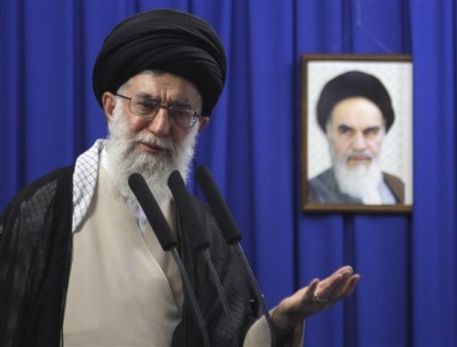Khamenei's Neurosis

Juan Cole has some fun with Chatam House's critical analysis of the Iranian presidential election:
As I had noted earlier, the official results ask us to believe that rural ethnic minorities (some of them Sunni!) who had long voted reformist or for candidates of their ethnicity or region, had switched over to Ahmadinejad. We have to believe that Mehdi Karroubi's support fell from over 6 million to 330,000 over all, and that he, an ethnic Lur, was defeated in Luristan by a hard line Persian Shiite. Or that Ahmadinejad went from having 22,000 votes in largely Sunni Kurdistan to about half a million! What, is there a new organization, "Naqshbandi Sunni Sufis for Hard Line Shiism?" It never made any sense.
Agreed. I suppose the one contrarian perspective here is that Ahmadinejad had four years to embrace nationally popular issues, such as the nuclear energy program, and also used energy subsidies to buy off villages and the poor (attempted to, anyway). Indeed, Michael Totten and I had this same debate via email, and in most cases, Michael had a reasonable and factual retort to every point I could muster in Ahmadinejad's favor. There's only so much advocacy you can do for the Devil.
The Chatam analysis only reaffirms this point. All in all, it makes me feel somewhat validated for my initial, gut response to the whole incident. In 1979, it was the people in the streets demanding an Islamic Republic. Today, it's still the people in the streets calling for an Islamic Republic. But instead of the impediment being a mostly secular dictatorial Shah, it's instead, this time around, a quasi-clerical dictatorial Mullah.
And for what? What forced Khamenei to act with such haste and carelessness? He is apparently so nervous and fearful for his own grip on power - as well as his own financial security - that he was willing to hand the theocracy over to the state's security forces. Fearing his own rule over the Islamic Republic was at risk, he instead decided he'd rather preside over a Junta than nothing at all.
So worried he must have been, that gambling on another Khatami-esque candidate simply wouldn't do. So rather than deal with Mousavi, the Supreme Leader decided to make a complete mockery of the already questionable election process in Iran.
Unlike some, I don't view Mir Hossein Mousavi as a revolutionary figure. If anything, his message merely appears as such in juxtaposition to a Supreme Leader who has abandoned the principles of the revolution.
And this is the real tragedy of the week's events. The tie that seemingly binds Mousavi's base isn't revolution, but recognition. All these Iranian nationalists wanted to know was that their voices - while greatly limited - mattered at least somewhat to the ruling elites.
The Chatam findings have answered that question for them, and Khamenei's answer was clearly a resounding 'no'.
---
All photos credit: AP Photos












